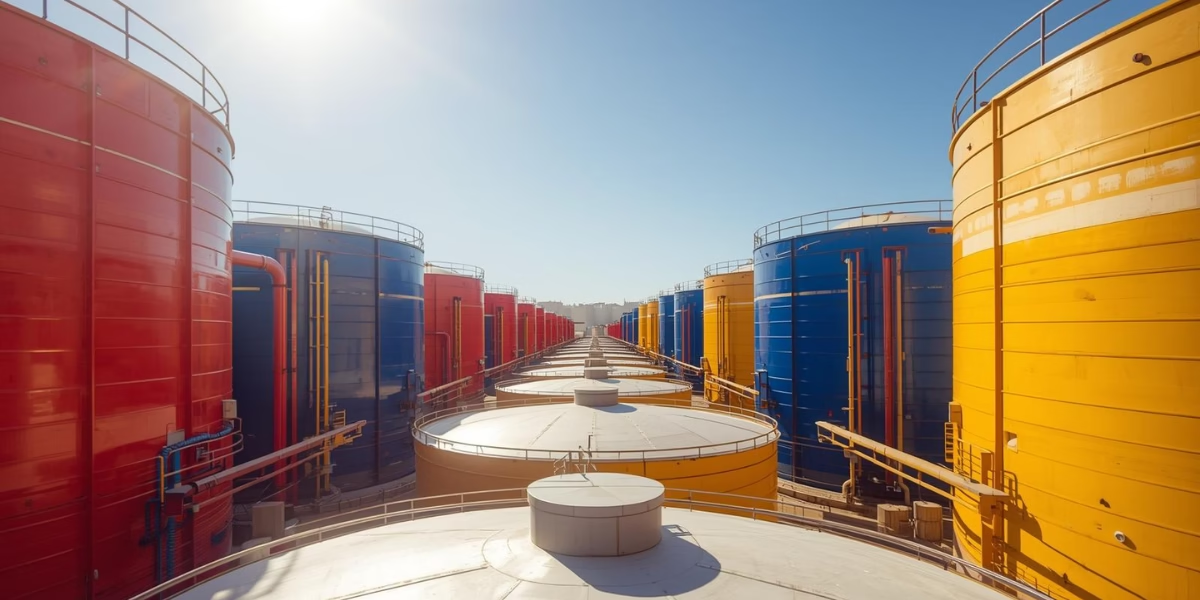Discover how Vinyl Ester Resin protects chemical processing equipment from corrosion and boosts long-term reliability. Learn why this advanced resin is becoming an industry favourite.
Corrosion is one of the biggest challenges in chemical processing. It weakens equipment, disrupts operations, and drives up maintenance costs. Over time, it can even cause complete system failure. That is why many industries now rely on Vinyl Ester Resin as a dependable solution. This advanced resin offers high durability and stands strong against aggressive environments. And as chemical plants push for better performance, its role continues to grow.
Why Corrosion Protection Matters in Chemical Processing?
Chemical plants work in demanding environments. Tanks, pipes, reactors, and floors are exposed to acids, alkalis, solvents, and extreme temperatures. Even small levels of corrosion can lead to equipment leaks or contamination. As a result, downtime increases and repair expenses rise.
Therefore, industries need materials that can withstand these harsh conditions. Traditional materials may not always meet the requirements. This is where Vinyl Ester Resin proves its value.
What Makes Vinyl Ester Resin a Strong Choice?
This speciality resin is known for its toughness. It is used in FRP (Fiber Reinforced Plastic) equipment, linings, and coatings. It offers a fine balance between strength and flexibility. Because of this, many plants choose it for structures that must perform under stress.
It also resists chemical attack better than many alternatives. Although epoxy and polyester resins have their own strengths, Vinyl Ester Resin stands out in corrosive conditions. This makes it ideal for the chemical industry.
How Vinyl Ester Resin Strengthens Equipment?
Vinyl Ester Resin Enhances Structural Reliability
Equipment in chemical processing plants must function without interruption. Vinyl Ester Resin helps achieve this. When used in FRP tanks, pipes, or ducts, it supports the overall structure and reduces the chance of failure. The equipment stays stable even under continuous load.
It Extends Equipment Life
Many failures in chemical plants begin with slow, hidden corrosion. Over time, these small points grow into bigger weaknesses. Vinyl Ester Resin slows this entire process. It creates a barrier that keeps equipment protected for many years. As a result, replacement cycles become longer, and plants operate more efficiently.
Vinyl Ester Resin Reduces Maintenance and Downtime
Maintenance shutdowns can be expensive. They halt production, require labour, and disrupt schedules. But using this resin helps cut these unplanned events. Since the material stands strong in harsh settings, equipment remains stable. Repairs become less frequent and easier to plan.
It Performs Well in Extreme Environments
Chemical processing often involves extreme heat or fluctuating temperatures. Many materials expand, crack, or fail under such conditions. Vinyl Ester Resin handles these changes better. This ensures safety and consistent performance over time.
Vinyl Ester Resin Works Well with FRP Systems
FRP systems are common in chemical plants. They are lightweight, strong, and resistant to many chemicals. Vinyl Ester Resin pairs perfectly with these systems. It helps enhance flexibility, strength, and overall design freedom. Because of this, engineers prefer it for both new installations and upgrades.
Applications of Vinyl Ester Resin in Chemical Plants
Vinyl Ester finds use in a wide range of equipment, including:
- Storage tanks and scrubbers
- Chemical reaction vessels
- Piping systems for acids and solvents
- Protective linings
- Flooring in chemical handling areas
- Ducts and exhaust systems
Its versatility makes it suitable for nearly every corner of a plant.
Why Industries Prefer Vinyl Ester Resin Over Other Materials?
There are several reasons for its growing popularity:
- It adapts to different design needs.
- It works well in corrosive and high-temperature zones.
- It remains reliable under mechanical stress.
- It reduces lifecycle costs.
Even though the initial installation may cost more than basic materials, long-term savings are significant. That is why more industries are shifting toward Vinyl Ester solutions.
Sustainability and Long-Term Value
Chemical plants are focusing more on sustainable operations. Using durable materials is part of this shift. Vinyl Ester Resin supports this approach by reducing frequent replacements. Less waste is generated, and operations become smoother. Because equipment lasts longer, the environmental impact becomes lower.
The Future of Vinyl Ester Resin in Chemical Processing
As industries expand, their demand for strong, reliable materials will grow. This resin is expected to play a bigger role. It supports modern engineering needs and offers long-term stability. New formulations are being developed as well. These advanced versions will help industries handle even more extreme environments.
Concluding Thoughts
Corrosion may be a major challenge for chemical processing plants, but it is no longer unbeatable. Vinyl Ester Resin offers a powerful way to strengthen equipment, reduce downtime, and extend service life. It delivers long-term value and helps industries operate with confidence. As technology advances, this resin will continue to shape the way chemical facilities protect their assets.
COMPANY INFO
Website: www.crestresins.com
Phone: +91 9879233188
Email: enquiry@crestresins.com
Address: 605/A, 6th Floor, Tower D, Times Square Grand Office, Sindhubhavan Marg, Near Taj Hotel, Ahmedabad, Gujarat - 380059

